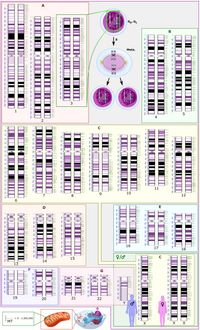
Learning the protein language: Evolution, structure, and function.
Sign Up to like & getrecommendations! Published in 2021 at "Cell systems"
DOI: 10.1016/j.cels.2021.05.017
Abstract: Language models have recently emerged as a powerful machine-learning approach for distilling information from massive protein sequence databases. From readily available sequence data alone, these models discover evolutionary, structural, and functional organization across protein space.… read more here.
Keywords: language models; protein language; function; language ... See more keywords

Evo-velocity: Protein language modeling accelerates the study of evolution.
Sign Up to like & getrecommendations! Published in 2022 at "Cell systems"
DOI: 10.1016/j.cels.2022.03.004
Abstract: Understanding how protein sequences have evolved is one of the defining challenges in modern biology. In this issue of Cell Systems, Hie et al. describe a novel phylogenetic approach, dubbed "evo-velocity," that exploits protein language modeling… read more here.
Keywords: evo velocity; protein language; language modeling;

A Visual Language for Protein Design.
Sign Up to like & getrecommendations! Published in 2017 at "ACS synthetic biology"
DOI: 10.1021/acssynbio.6b00286
Abstract: As protein engineering becomes more sophisticated, practitioners increasingly need to share diagrams for communicating protein designs. To this end, we present a draft visual language, Protein Language, that describes the high-level architecture of an engineered… read more here.
Keywords: protein; visual language; protein language; language protein ... See more keywords

DeepLoc 2.0: multi-label subcellular localization prediction using protein language models
Sign Up to like & getrecommendations! Published in 2022 at "Nucleic Acids Research"
DOI: 10.1093/nar/gkac278
Abstract: Abstract The prediction of protein subcellular localization is of great relevance for proteomics research. Here, we propose an update to the popular tool DeepLoc with multi-localization prediction and improvements in both performance and interpretability. For… read more here.
Keywords: subcellular localization; localization; localization prediction; protein language ... See more keywords

Generative power of a protein language model trained on multiple sequence alignments
Sign Up to like & getrecommendations! Published in 2022 at "eLife"
DOI: 10.1101/2022.04.14.488405
Abstract: Computational models starting from large ensembles of evolutionarily related protein sequences capture a representation of protein families and learn constraints associated to protein structure and function. They thus open the possibility for generating novel sequences… read more here.
Keywords: trained multiple; sequence; protein language; protein families ... See more keywords